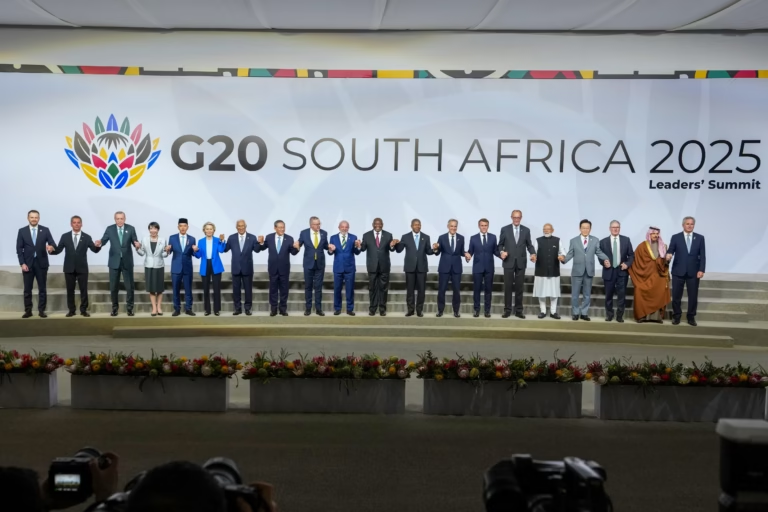By Samson Ademola
World leaders have committed to increasing investment in early childhood education and childcare, marking what advocates describe as a significant breakthrough for the early years.
This pledge was made at the G20 summit in Johannesburg, South Africa, the first on African soil. The Group of Twenty (G20) is an international forum of both developing and developed countries which seeks to find solutions to global economic and financial issues.
The commitment, captured in the G20 Leaders’ Declaration released at the close of the summit, places early childhood development (ECD) on the agenda of the world’s major economies for the first time since 2020.
The declaration commits governments to “advance a comprehensive approach to Early Childhood Care and Education policy development and implementation that engages both government and society, including their shared values and cultures, as a vital investment for a country’s social and economic future.”
It also calls for greater recognition of the teaching profession to address teacher shortages, especially in early and basic education.
Advocates push world powers to prioritise ECD investment
The renewed attention follows a year of coordinated advocacy by the Act For Early Years campaign, in partnership with organisations, including Theirworld, Ilifa Labantwana, Smart Start, Roger Federer Foundation, and the Early Childhood Development Action Network.
The campaign highlighted the global financing gap in early learning and care and pushed leaders to prioritise inclusive, affordable and quality early years services.
Globally, more than half of the world’s children, about 350 million, lack access to the childcare they need, while around half of pre-primary-aged children are not enrolled in early education programmes.
Campaign partners argue that increased investment is essential to improving learning outcomes, workforce readiness, gender equality and child wellbeing.
ALSO READ: 25 Years of Impact: Inside ActionAid Nigeria’s fight against poverty, inequality
Theirworld had launched the Act For Early Years campaign to mobilise leaders across the world to support ECD. Its President, Justin van Fleet, said the G20 outcome reflects growing political recognition.
“World leaders have recognised that investing in early childhood education, childcare and the care economy is not just social spending, it is one of the smartest and most transformative economic decisions a country can make,” Mr Fleet said.
South Africa’s Minister of Basic Education, Siviwe Gwarube, added that the country had pushed to place early childhood education at the centre of G20 priorities, describing it as “an economic investment”.
Momentum towards 2027 Finance Summit
Advocates say the progress achieved at the summit sets the stage for action at the first International Finance Summit for Early Childhood in 2027.
“As we move toward the first-ever early years finance summit in 2027, political recognition must turn into real investment: expanding childcare and preschool, supporting the workforce and strengthening social protection for children and caregivers,” Mr van Fleet said.
Global Youth Ambassadors from Theirworld also participated at the G20 summit. They persuaded leaders to sign the Act For Early Years ‘Minifesto’, a child-sized document that calls for increased spending on early childhood development and pre-primary education.
About Act for Early Years
The Act for Early Years is a growing movement of more than 150 organisations around the world and a high-level advisory group consisting of early childhood networks around the world.
The coalition is made up of partners such as United Nations Children’s Fund (UNICEF), United Nations Educational, Scientific and Cultural Organization (UNESCO), LEGO Foundation, Dubai Cares and Sesame Workshop.

